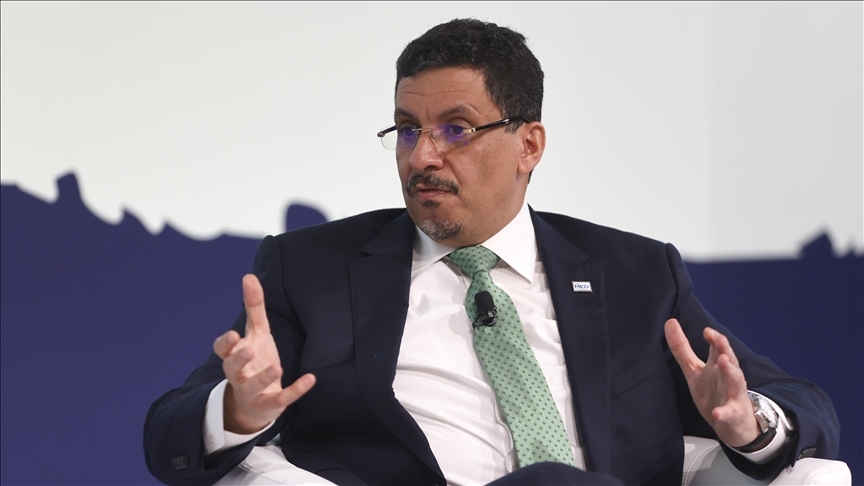Yemeni Prime Minister Ahmed bin Mubarak resigns over authority issues
Bin Mubarak says he encountered many challenges during his tenure, ‘most notably being denied the ability to exercise my constitutional powers in making necessary decisions to reform several state institutions’

ISTANBUL
Yemeni Prime Minister Ahmed bin Mubarak announced his resignation from office on Saturday, citing repeated obstructions that prevented him from exercising his constitutional authority.
In a post on X, Mubarak wrote: “I have just concluded a meeting with the Chairman of the Presidential Leadership Council , Rashad al-Alimi, during which I handed him my resignation as Prime Minister.”
“I pray for success for my successor and call on everyone to support him and rally around him to fulfill his duties in this difficult time our country is going through,” he added.
The Presidential Leadership Council has not yet issued an official response.
Mubarak explained that he had faced many challenges during his tenure, “most notably being denied the ability to exercise my constitutional powers in making necessary decisions to reform several state institutions, as well as being prevented from carrying out the overdue cabinet reshuffle.”
Despite the obstacles, he said his government achieved significant progress in a short time, especially in financial and administrative reform and in combating corruption.
He also emphasized his commitment to supporting “the battle to restore the state and defeat the Houthi coup.”
“Out of concern for the unity of all components of the Yemeni state,” Mubarak wrote in his resignation letter, “I hereby submit my resignation from the position of prime minister.”
The resignation comes amid a worsening economic crisis in Yemen. The Yemeni rial is experiencing an unprecedented collapse, deepening the suffering of citizens in a country the United Nations has described as facing one of the world’s worst humanitarian crises.
The Yemeni government has said it is struggling with a severe financial shortfall due to the ongoing halt of oil exports, which has been in place since October 2022 following Houthi attacks on oil facilities.
The Houthi group has tied the resumption of exports to an agreement on how revenues would be distributed and used to pay public sector salaries nationwide.
Yemen has been mired in conflict since 2014, when the Iran-backed Houthis seized the capital, Sanaa, and much of the country from the internationally recognized government.
Anadolu Agency website contains only a portion of the news stories offered to subscribers in the AA News Broadcasting System (HAS), and in summarized form. Please contact us for subscription options.

